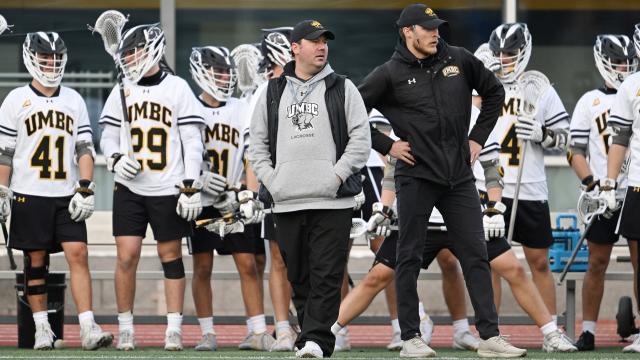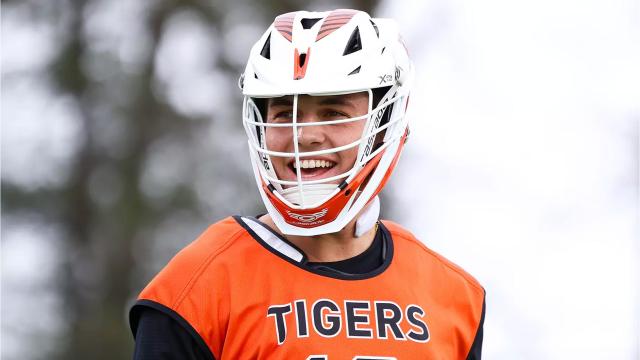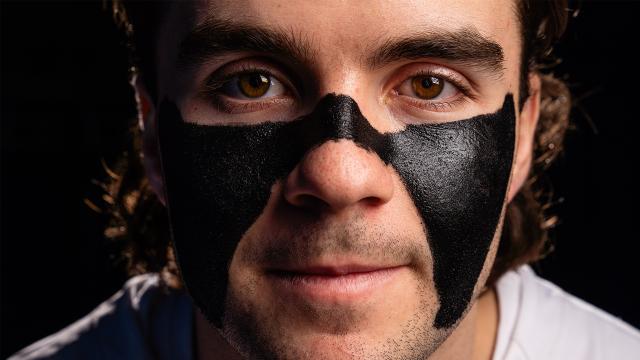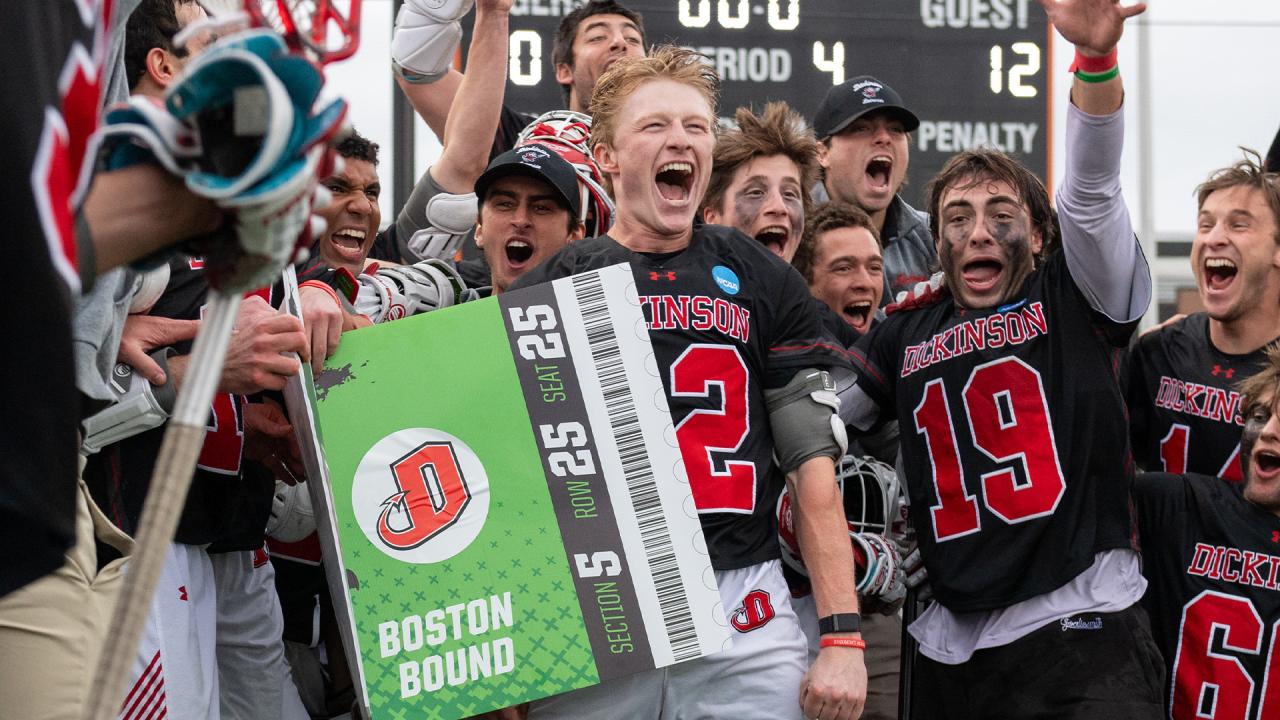
'Cinderella' or Not, Dickinson Giving Hope to Teams Trying to Break Through
This Sunday night, Dickinson will take on undefeated Tufts for the NCAA Division III men’s lacrosse championship.
Both teams have had tremendous seasons, but Tufts is seen as the heavy favorite despite Dickinson beating, in order: Denison, Salisbury, RPI and RIT. Maybe it’s because Tufts has won its games by an average of 8.68 goals per game. Or that the Jumbos have six players with 50 points or more on their roster. Or maybe it’s that the Jumbos are the defending champions and Dickinson is in their first title game ever.
The better question to consider is this: How did a team that started this season 3-4 make it to the national championship game?
Well, everything actually starts with two of those losses, specifically a 24-7 defeat to RIT and an 11-8 loss to Washington and Lee. An injury-riddled Dickinson squad rolled up to the Callum Robinson Mustang Classic at Stevenson back in March ready for each of those teams. But things didn’t go to plan, and the entire philosophy of the squad changed, or, at the very least, shifted to a more pragmatic approach.
“First of all, we talk about the Mustang experience, which we have done for years and love because it prepares us for bigger challenges,” Dickinson head coach Dave Webster said. “It certainly did that this year. It was unsuccessful as far as results, but we look back on that as the catalyst. It was the reason why we were able to make some changes. Had we been OK at the Mustang, I don’t know that we would be here now. It made us take some really hard, long looks at where we were and how we were doing things. I look back on it fondly — a lot of positives came out of that experience.”
The Red Devil defense is really the aspect of this team that should get the lion’s share of the credit. Because Dickinson’s best player isn’t on offense. Defensive leader, Evan Karetsos has two modes — hunting and supporting the other hunters.
“I think it’s certainly fair to say that he’s our best player right now,” Webster said. “He’s an absolute beast. I think he’s able to play with such confidence because he has such trust in his fellow defenders. We think Jack Deady is our best one-on-one defender, so we’re able to put him on the other team’s best offensive player. That allows Evan to do other things and frees him up to make plays, and he’s made a lot of them. Our third close defender is Ethan Ackerman, who is also a terrific one-on-one defender.”
Faceoff man Ben Trucksess, besides having one of the most entertaining names to say out loud, has been a rock, but he came into the season in the shadow of one of Dickinson’s greatest draw men of all time, John McKee. McKee broke all sorts of records in red and black, and despite not being on this year’s team, he paid it forward by mentoring Trucksess, who was McKee’s understudy for the last three seasons.
“This is Ben’s first year as ‘our guy,’ and he’s a senior,” Webster said. “He was behind McKee, who was a fifth-year player with Johns Hopkins this year. So, Ben was behind him, learning and preparing for three years for this opportunity, and it’s been remarkable in his first year as our guy how successful he has been. He’s gotten better, smarter and stronger throughout the season.”
If you look at point totals, you might be surprised to see that there really isn’t one guy who dominates the top of the Dickinson scoring chart. If you flip it around and look at Tufts’ box scores, the difference is stark, not just in volume, but in total output.
“We haven’t been great offensively,” Webster said. “We didn’t have much identity there, and that’s where we had a lot of injuries early in the season. I don’t think we had the same starting midfield for the first 10 games. It was kind of a revolving door there, and at attack because of injuries. Those things have solidified over the last few weeks, and it’s really helped us. We are still moving some pieces around, but if you look at Tufts’ scoring, there are probably five guys who have more points than our leading scorer. We certainly don’t average as many goals as they do per game, but we have many players score in each game. We have seven, eight, nine guys getting a goal or two, it seems like every game.”
Still, in that crowd of 50ish-point scorers, Luke Whalen has emerged as one of the team’s key decision-makers in crunch time during this playoff run. He has four game-winning goals on his resume, including the overtime strike against Salisbury in the third round of the NCAA tournament.
“Luke consistently has been on the scoresheet,” Webster said. “He missed some games early on, so as he’s gotten healthier and more consistent, his game has certainly taken off. He’s had a lot of big moments — the overtime winners against Denison and Salisbury. He’s a complete middie. He can run and run and run, super on ground balls, great at keeping his head up and reading the defense. He’s been really strong, and again, it’s helped the other guys be more confident around him.”
This Dickinson team had to earn its spot on both sides of the ball. The Red Devils don’t overwhelm teams with their aggressiveness or shot volume. They’re masters of counterpunching, master mimics who can shift into different modes at a moment’s notice. That’s how they have kept winning, They stay in the game with timely goals and even more impactful stops on the other end of the field.
Dealing with a team like Tufts, which makes you pay for every mistake (usually with a goal), the little things are going to be just as important as the bigger things. Preparing for Tufts’ quick restarts, drop ride and snapping from man-to-man into zone are all arduous tasks for any coaching staff.
When you add in the Jumbos’ overall physical speed advantage, well, you know that you need to find a way to slow things down if you want to stay in the game.
The Red Devils are up against what many in the Division III world consider to be the evil empire. The Jumbos are unbeaten and have trampled the majority of their opponents in and out of the NESCAC. Most recently, Tufts demolished long-time NESCAC foe Bowdoin 26-11 in the semifinals.
But no team is invincible.
“We have to minimize turnovers,” Webster said. “We have been talking about tempo control and the pace. The average time of our possessions has to continue to go upward. Everything has to combat the tempo and pace of those guys.”
Fortunately, controlling the tempo is one of the main reasons Dickinson has gotten to this point.
“It is a nightmare; they’re so good with speed, really in two ways,” Webster said. “One is that physically they’re really fast, but two, the quick whistles, the restarts, anticipating the mental part of it and having that speed as well combined with the physical speed — it’s a real weapon. So, we’re not suddenly going to get faster and be able to match that. We do have to be smart about the restarts and the whistles and understand that on those saves by the goalie and run outs on the endline or a ride back turnover, there is no hesitation from them; they are attacking. So we have to be prepared for that.”
People keep referring to this Dickinson team as some sort of Cinderella. But that’s a bit of an insult to a team that has taken down the likes of Salisbury, RPI and RIT in May. While multiple programs across the country are celebrating Dickinson’s run to the championship, it’s not an unprecedented feat.
If you go back into the recent history of the Division III final, it’s easy to find parallels between this Dickinson team and Cabrini’s 2019 title-winning squad, just inverted. Cabrini had a talismanic scorer in Jordan Krug to go with a 5-2 run in the fourth quarter en route to their 16-12 title win over Amherst (which, ironically, had to beat Tufts on the road in the quarterfinals).
But in order for Dickinson to become a first-time champion, it will have to do things differently.
Fairy godmothers don’t exactly line up to help Red Devils, but programs across the country are rooting for Dickinson to succeed. Because Dickinson represents the culmination of every program’s dream — a shot at the national title. With or without a glass slipper.
“I don’t think that I’ve said ‘Cinderella' once, and I don't know that I’ve heard it in our locker room,” Webster said. “We all hear it and see it. We understand it, and it makes sense. I don’t know that it’s a compliment; I think that it’s a fact that this is our first championship game, we have five losses, and we’ve never been there. ... I think a lot of other coaches who have been working really hard with their programs and have never had that chance to get to this point maybe are inspired or see some hope — ‘If they can do it, why can't we?’ If that’s the case, I think that’s awesome and I hope we represent ourselves in the best way and continue to play hard to our absolute best to give those coaches and teams hope for their own success in these situations.”
Kyle Devitte
Kyle Devitte played high school lacrosse at John Stark (N.H.) and Tilton Prep (N.H.) before embarking on a playing career at St. Michael's College and Clark University in the early aughts (oughts?). After graduating from Clark, he went on to coach lacrosse at NCAA Division II and III schools throughout New England for 12 years before becoming the Gear and Lifestyle Editor at Inside Lacrosse in 2014. He's the managing editor of the New England Lacrosse Journal and coaches at Hopkinton (N.H.) High School, where he helped the Hawks to a state championship in 2023.
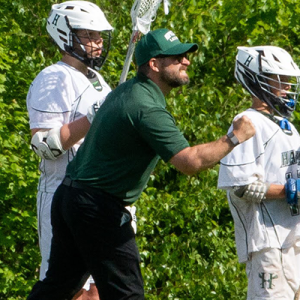
Categories
Tags
Related Articles
